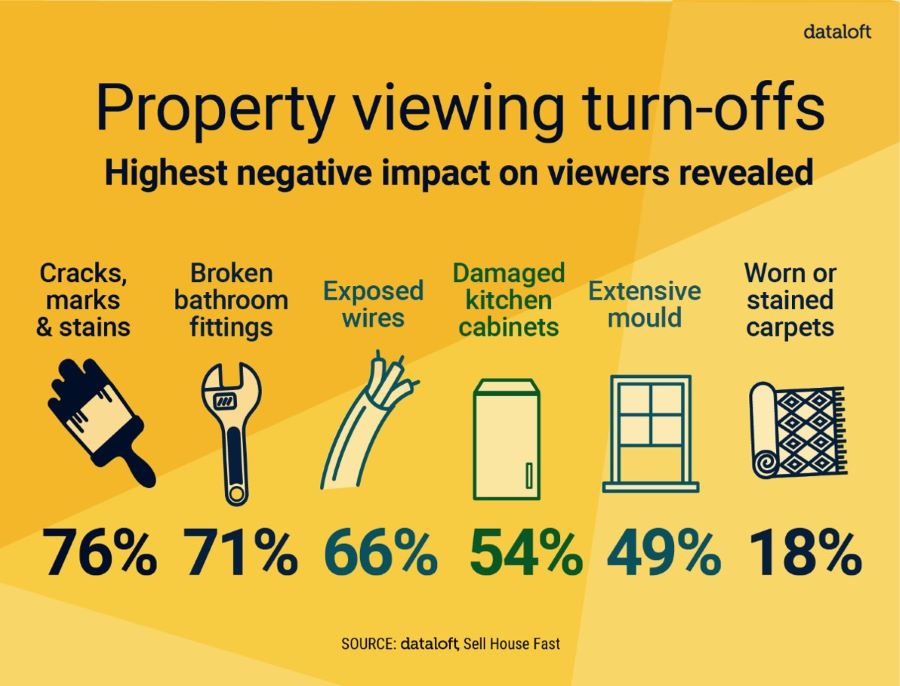Buying a home is as much an emotional decision as it is a logical one. Research undertaken by Norwich Union shows that Britons generally rely on instinct when making the biggest purchase of their life, with as many as 9 in 10 people citing "gut feeling” as very important. Further research has shown that almost half of us buy a house because we ‘just like it’! As a seller, that's pretty important data to know.
So, what impacts our emotional decision making and, more specifically, what are the key features or attributes of a property that can quickly “turn off” potential buyers? Research undertaken by Dataloft suggests that most of the major “turn offs” are relatively superficial and can be dealt with simply and quickly by attending to some basic DIY.
The key findings are that:
- Cracks, marks and stains leave the biggest negative impression on prospective buyers during a viewing, with a 76% turn-off rate. This is according to Sell House Fast who surveyed 1,266 people who have been to several viewings over the last year.
- 71% of prospective buyers said they would be dissatisfied by bathroom fixtures not functioning and 66% are unhappy when they see exposed wires.
- Other factors leaving a negative impact on viewers include extensive mold, broken or missing handles, damaged kitchen cabinets and stained and torn carpets.
So what can sellers do? 73% of estate agents suggest thoroughly cleaning household appliances ahead of viewings and 68% suggest making the garden as presentable as possible. These are simple things that can make a big impact. Then, digging out the paintbrush and screwdriver and attending to basic repairs will potentially yield huge benefits when potential buyers walk through the door.
Sellers should remember that first impressions really do count and that one of the most effective ways to achieve the best result when selling your home is to understand and influence the psychology of the home buying process.

Want to know more?
Read more about the things that can attract and detract buyers :
Understand the psychology of home buying:







